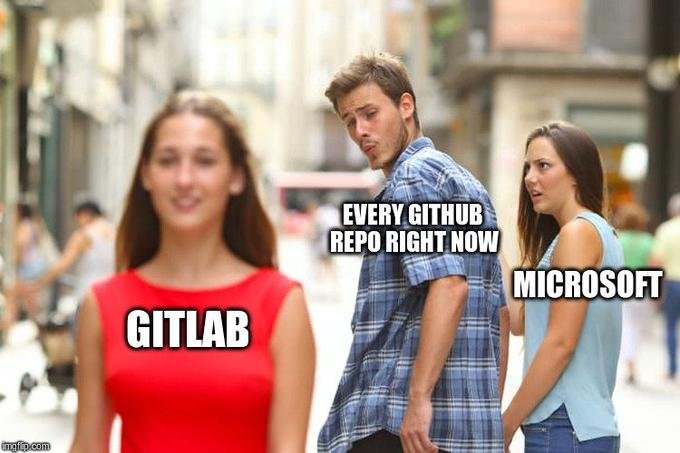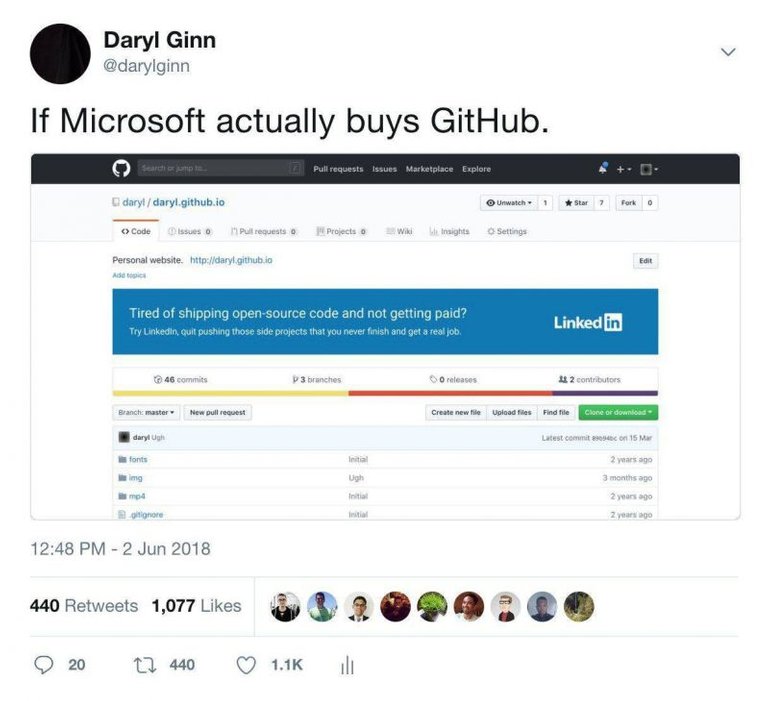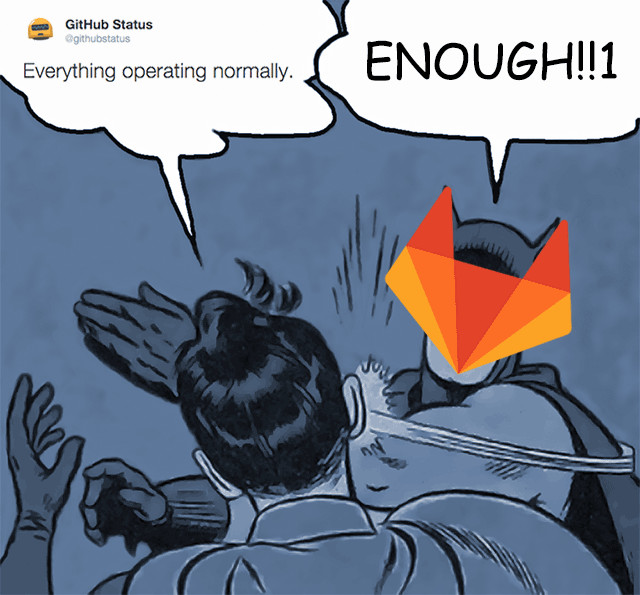
Microsoft bought Github. What Now?
To quote the Hitchhikers Guide to the Galaxy, my first though is DON'T PANIC. It is true that MicroSoft have a long history of buying decent things and slowly destroying them, so we may have to move out of Github eventually. And it might be a good idea if you run open source projects to start making preparations now so we aren't caught out at the last minute.
But things aren't going to change that fast, so we all have time to consider our options. What are they?
1. Stay on Github
Yes, as weird as it sounds, we can just decide to stay with a MicroSoft owned GitHub. I'm not saying we should, but I do think that we should at least weigh up the pros and cons, so we know what we will be gaining and losing by moving.

hopefully NOT how MicroSoft integrates LinkedIn with Github
Several benefits of staying include:
- Migration is a hassle no one wants.
- Let's face it, the features on Github are pretty good. Wiki's, issue trackers, team forums, gists. That little year chart with the green boxes. We're used it.
- @utopian-io. Whilst you can contribute to projects outside of github and get Utopian rewards, for the moment that is only subject to utopian's approval. We'll have to see if they update their policy.
- There is even an argument that MicroSoft will be good for Github, that they aren't the company they used to be under Bullmer and Gates. Time will tell I guess...
2. Go back to SourceForge
Remember when there was an exodus from SourceForge to Github because the former allowed project owners to optionally insert closed source advertisement code into their binary downloads. Then things got even worse when SourceForge started taking over abandoned projects that had moved to Github, including SIMP, running them as their own advert laden clones.

Yeah. Why would we want to go back right?
Well apparently SourceForge were bought out a couple of years back and the new owners did away with the dodgy practices. The site is looking clean and inviting. It has a tool for migrating from Github, It provides each repository with an ticket tracker for issues, a discussion forum, a wiki and a host of other tools.
3. Gitlab
There is also a new player in town everyone seems to be talking about, Gitlab. I've never used this site before so for me at least it would mean a new account. However it looks like moving from Github to Gitlab is pretty easy.

And whilst they have tiered hosting plans for various levels of features, the free version comes with issue tracker, gitlab pages webhosting, wiki and other things we're used to seeing from github and sourceforge. Maybe worth a look?
4. Self-host
Self host a git repository, with self hosted wiki and self hosted issue tracker? * Everyone backs away slowly, carefully judging my sanity... *
There was once a time I wouldn't have really considered anything else. But lets face it, if you want contributors, having three different sign ups to manage becomes a bit of nightmare for both users and admin. However, given that Gitlab has a self hosted version, perhaps this isn't such a pipe-dream.
Perhaps an add-on to register new users and authenticate via steemconnect would make adoption even less painful?
5. GitTorrent
If we are going with a learning curve, then how does blockchain based git repository hosting sound? Complicated? Well yeah, but maybe worth it?
This is what GitTorrent does. It is basically Git merged with BitTorrent and uses Bitcoin to register usernames against torrent user hashes. Maybe self-hosted Gitlab could be forked to work with it?
Not an option that lends itself to a quick move however...
In the short term, I'll probably stay on github for now and maybe move to sourceforge or gitlab later.
What about you? Considering any of the above or choosing another option not listed?
THIS REALLY DOES SUCK!!! I guess the positive way to look at it would be that we have to figure out another solution... and one will appear.